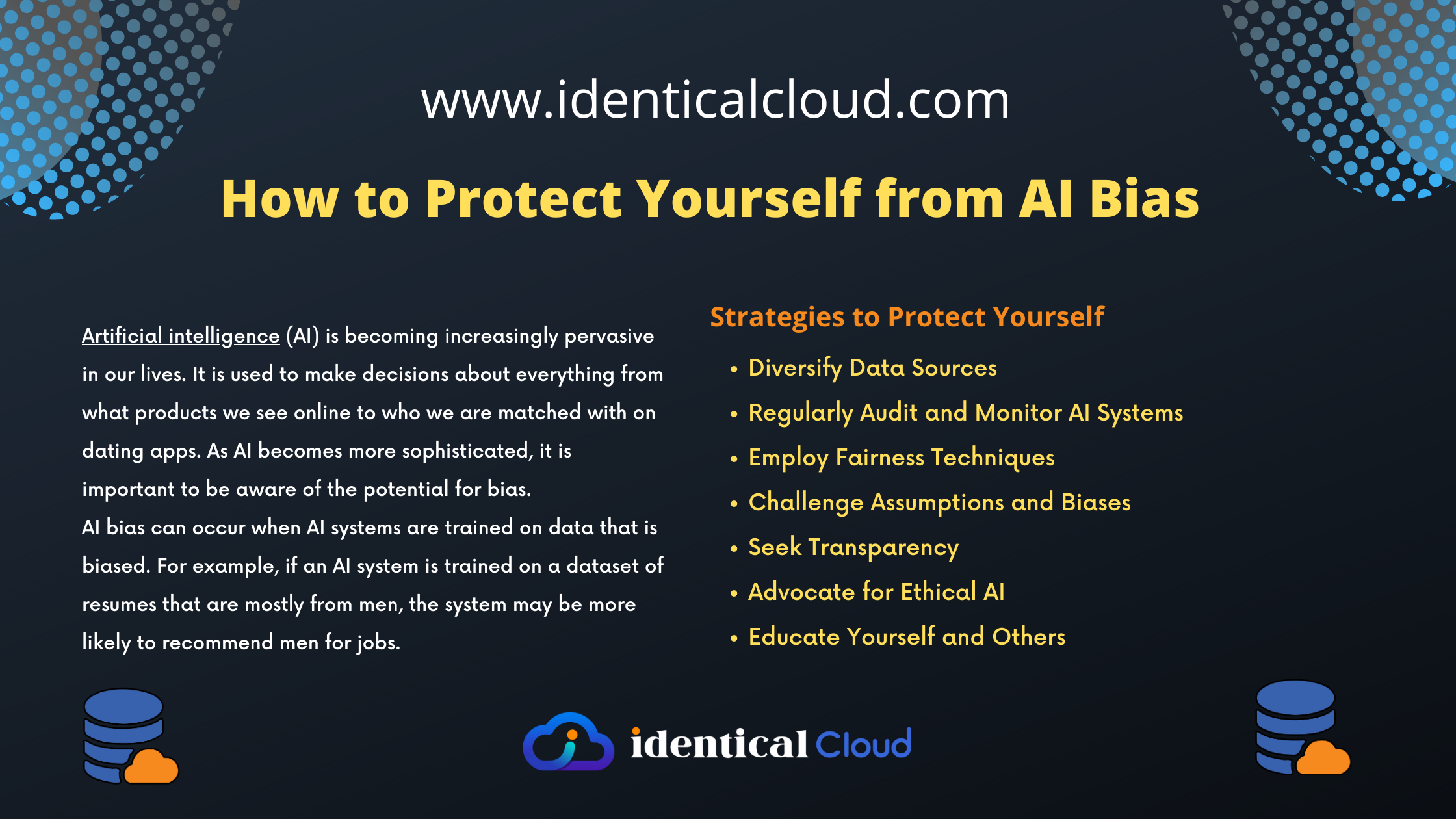
How to Protect Yourself from AI Bias
How to Protect Yourself from AI Bias
Artificial intelligence (AI) is becoming increasingly pervasive in our lives. It is used to make decisions about everything from what products we see online to who we are matched with on dating apps. As AI becomes more sophisticated, it is important to be aware of the potential for bias.
AI bias can occur when AI systems are trained on data that is biased. For example, if an AI system is trained on a dataset of resumes that are mostly from men, the system may be more likely to recommend men for jobs.
AI bias can also occur when AI systems are not properly designed. For example, if an AI system is designed to make decisions based on a single factor, such as a credit score, the system may be biased against people with lower credit scores.
Understanding AI Bias
What is AI Bias?
AI bias occurs when machine learning algorithms produce results that are systematically skewed due to the data they are trained on. This bias can reflect societal inequalities, stereotypes, or prejudices present in the training data.
Unintended Consequences:
AI bias can lead to harmful and unintended consequences. From biased hiring processes to discriminatory loan approvals, the impact of AI bias can be far-reaching and detrimental.
Strategies to Protect Yourself
Diversify Data Sources:
AI algorithms learn from data. By diversifying the data sources used to train AI models, you can help reduce the risk of bias. Incorporating data from a wide range of demographics and perspectives can result in a more balanced and representative model.
Regularly Audit and Monitor AI Systems:
Continuously audit and monitor AI systems for bias. Regularly assess the outcomes of AI decisions to identify any discrepancies that may indicate bias. This ongoing vigilance ensures that bias is detected and addressed promptly.
Employ Fairness Techniques:
Researchers are developing techniques to mitigate bias in AI algorithms. These fairness techniques aim to correct biases in the data or the algorithm itself. Implementing these techniques can help reduce the impact of bias on AI outcomes.
Challenge Assumptions and Biases:
When developing or using AI systems, challenge assumptions and biases in both the data and the algorithms. Question the underlying assumptions and test the model’s outputs to ensure they are fair and accurate.
Seek Transparency:
Choose AI systems that are transparent about their processes and decision-making. Look for models that provide explanations for their outputs, allowing you to understand how decisions are reached.
Advocate for Ethical AI:
Support organizations and initiatives that promote ethical AI development and use. By advocating for responsible AI practices, you contribute to a culture that values fairness and accountability.
Educate Yourself and Others:
Stay informed about AI bias and educate yourself about the potential risks. Share your knowledge with others to raise awareness and encourage responsible AI practices.
Protecting yourself from AI bias requires a proactive approach and a commitment to ethical AI practices. As AI becomes increasingly integrated into our lives, it’s crucial to prioritize fairness, transparency, and accountability. By diversifying data sources, employing fairness techniques, and advocating for ethical AI, you contribute to a future where AI systems work to enhance human lives without perpetuating biases or inequalities. As consumers and users of AI, we hold the power to shape the trajectory of technology, ensuring that it serves as a force for good in our rapidly evolving world.
FAQ’s
What is AI bias?
AI bias is a type of discrimination that can occur when AI systems are trained on data that is biased. This can lead to AI systems making decisions that are unfair or discriminatory.
How can I spot AI bias?
There are a few things you can look for to spot AI bias:
– Does the AI system make decisions that are consistent with your own understanding of fairness?
– Does the AI system make decisions that are consistent with the law?
– Does the AI system make decisions that are consistent with the company’s values?
